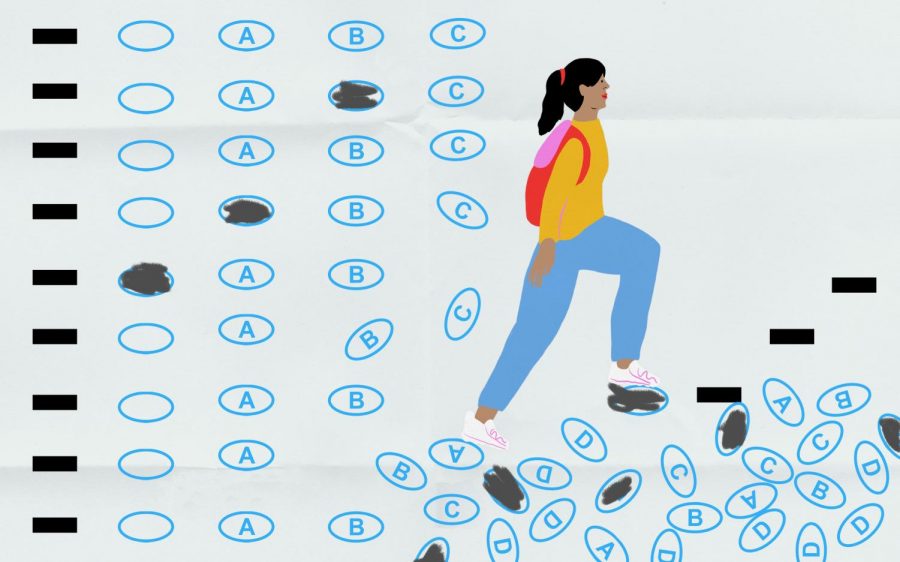The ACT and SAT: A Broken System
COVID-19 has further highlighted the inequalities of the standardized testing system.
October 13, 2020
When applying to college, standardized tests have long been a requirement for applications. However, in the face of COVID-19, almost every college has accounted for the circumstances, declaring their admissions process “test-optional.” Universities are estimating that only about 15% or less of the applicants will send test scores. “The majority of applications will not include test scores is our prediction,” says Admission Representative from Chapman University. Some schools have even become “test blind,” meaning that they will not take into consideration the standardized test scores.
This situation is very complex and everyone is trying to do what is best for themselves. As an individualistic society, American students have taken the mindset that they will do whatever they can to be the most successful in the college application process.
With private tutors, taking practice tests, and other forms of preparing for the ACT or SAT, test-taking is time-consuming. This is all while writing college essays and keeping up with schoolwork, making these tests yet another large addition to the college stress. This year the anxiety is even higher, as many seniors are facing the risk of studying for a test that will just be canceled, especially as a California student. Thus, O’Dowd students have even traveled to other destinations in the U.S. such as Arizona, Utah, and Idaho, all states where the coronavirus regulations are not as strict.
Alex Davis ’21 took the ACT in San Francisco saying, “It was weird to see so many people in the same room. Wearing a mask the entire time was also annoying, but it did not seem to bother me too much while taking the test.”
It is interesting to see the opportunities that are not available to all students. The UC’s main controversy in accepting test scores is that not everyone has the same access to test sites. Families are not willing or able to buy a plane ticket to another state or city. Moreover, the tests were already inaccessible pre-COVID, as many families cannot pay for a private tutor. There are many restrictive factors that some students can overcome, while others can not.
COVID-19 has very much highlighted the injustices of our world within every aspect, including the competitiveness of the ACT and SAT. These standardized tests have made it so that instead of focusing on intelligence, they have begun to call attention to social and economic disparities. According to the Washington Post, “students from families earning more than $200,000 a year average a combined score of 1714, while students from families earning under $20,000 a year average a combined score of 1326.”
As colleges make the decision of whether or not to require or even allow test scores, it ultimately comes down to the discussion of what is just. Colleges all over the U.S. strive to create the most inclusive and accepting communities and this pandemic has emphasized that standardized tests do not meet these criteria.
Colleges are now moving towards accepting students based on personal essays and grades, as they are a better reflection of their character, rather than a subjective test score. The University of Oregon is an example of a school that went “test-optional” even before the pandemic due to these inequalities.
COVID-19 did not create the issues with these tests, they just further revealed the deep-rooted injustices. Even when times go back to normal, it is rare that these tests will be as important as they once were. It has highlighted the inequities within the education and college admissions system. For now, however, students should choose what they feel is best and just.

